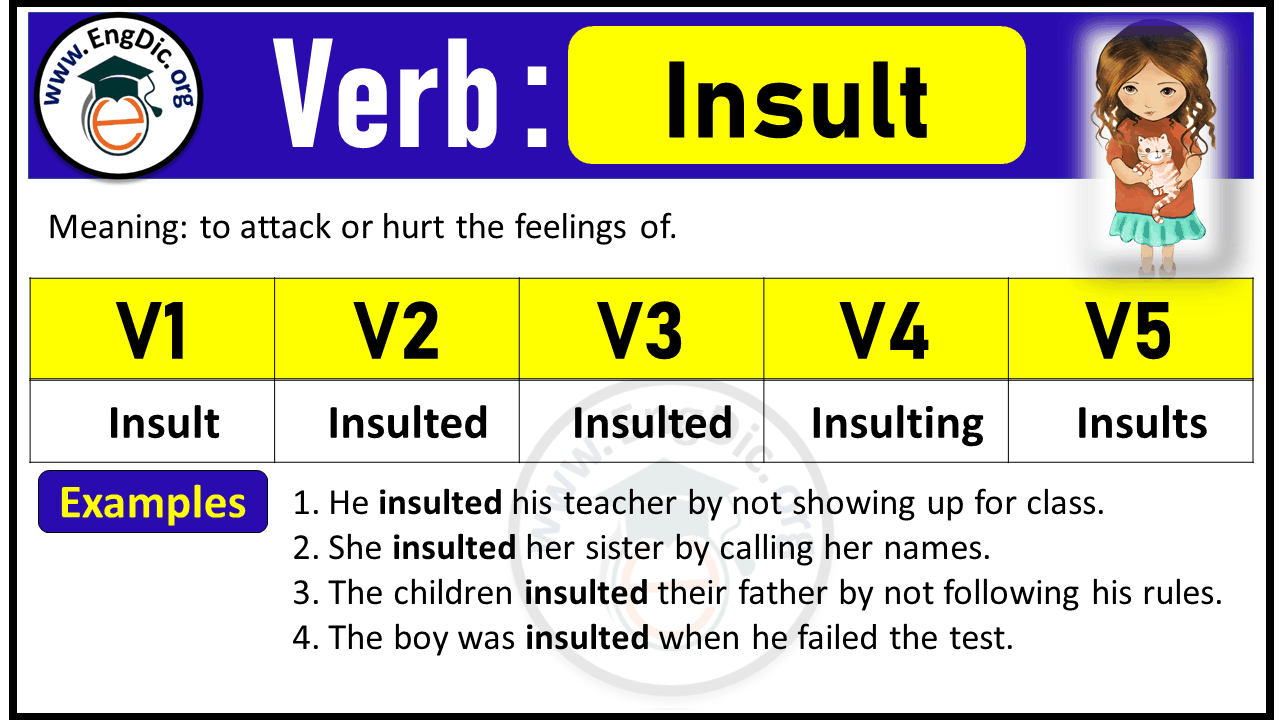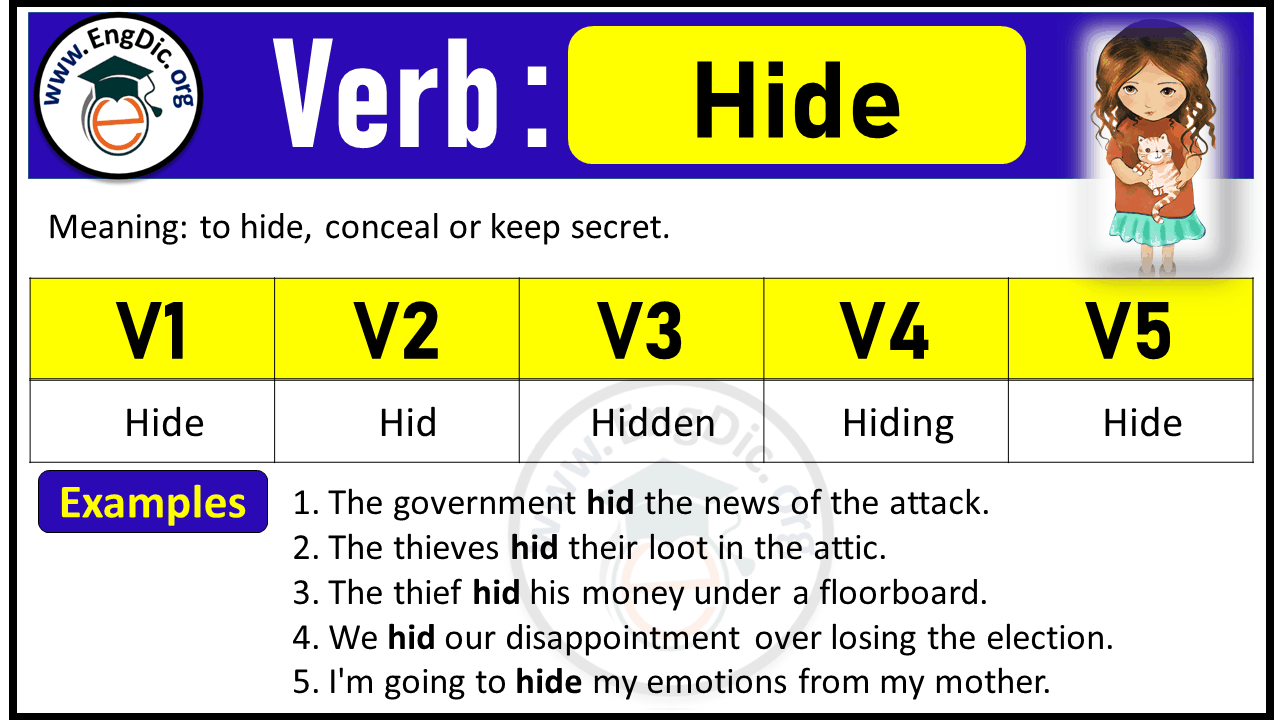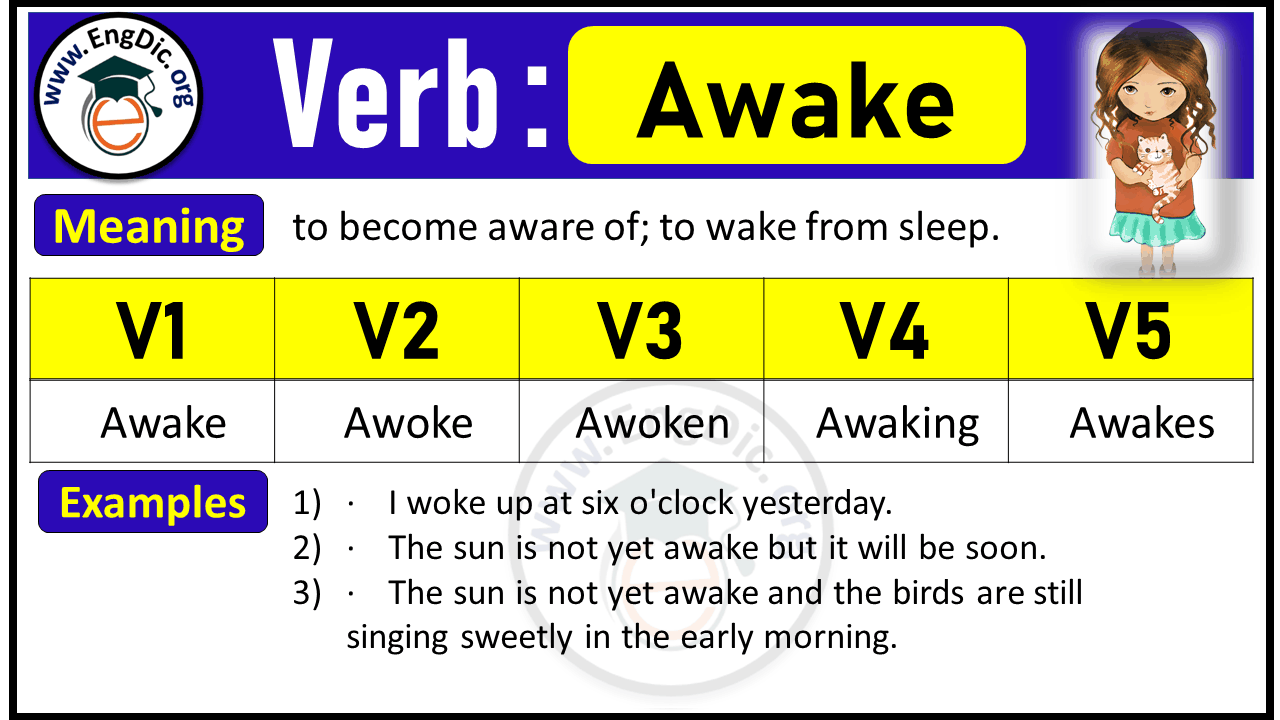Meaning: to move or cause to move from a stopped position, especially in order to do something.
Start Verb Forms V1 V2 V3 V4 V5
| Base Form/Infinitive (V1): | Start |
| Past Tense (V2): | Started |
| Past Participle Form (V3): | Started |
| Present Participle/Gerund (V4): | Starting |
| 3rd Person Singular (V5): | Starts |
Start Past Tense:
Past Tense of Start is Started.
Example: Sarah started the engine.
Start Past Participle:
Past Participle Form of Start is Started.
Example: Sarah has started the engine.
Start Present Participle:
Present Participle Form of Start is Starting.
Example: Sarah is starting the engine.
Start 3rd Person Singular:
3rd Person Singular of Start is Starts.
Example: Sarah starts the engine.

Start Conjugation
Indefinite / Simple Present Tense
- I start the engine.
- We/You/They start the engine.
- He/She/It/Adam starts the engine.
Present Continuous Tense
- I am starting the engine.
- We/You/They are starting the engine.
- He/She/It/Adam is starting the engine.
Present Perfect Tense
- I have started the engine.
- We/You/They have started the engine.
- He/She/It/Adam has started the engine.
Present Perfect Continuous Tense
- I have been starting the engine.
- We/You/They have been starting the engine.
- He/She/It/Adam has been starting the engine.
Indefinite / Simple Past Tense
- I started the engine.
- We/You/They started the engine.
- He/She/It/Adam started the engine.
Past Continuous Tense
- I was starting the engine.
- We/You/They were starting the engine.
- He/She/It/Adam was starting the engine.
Past Perfect Tense
- I had started the engine.
- We/You/They had started the engine.
- He/She/It/Adam had started the engine.
Past Perfect Continuous Tense
- I had been starting the engine.
- We/You/They had been starting the engine.
- He/She/It/Adam had been starting the engine.
Indefinite / Simple Future Tense
- I will start the engine.
- We/You/They will start the engine.
- He/She/It/Adam will start the engine.
Future Continuous Tense
- I will be starting the engine.
- We/You/They will be starting the engine.
- He/She/It/Adam will be starting the engine.
Future Perfect Tense
- I will have started the engine.
- We/You/They will have started the engine.
- He/She/It/Adam will have started the engine.
Future Perfect Continuous Tense
- I will have been starting the engine.
- We/You/They will have been starting the engine.
- He/She/It/Adam will have been starting the engine.
Past Tense of Start Phrasal Verbs
| Start Phrasal Verbs | Past Tense |
| Start up | Started up |
| Start off | Started off |
| Start in | Started in |
| Start out | Started out |
| Start over | Started over |
| Start on | Started on |
| Start with | Started with |
| Start for | Started for |
| Start about | Started about |
| Start to | Started to |
Explore Other Verb Forms:
FAQS
What is the Future Tense of Start?
Future Tense of start is “will start”.
What is the Present Tense of Start?
Present Tense of start is “start + s/es or ing”.
| I/we/you/they | start |
| He/she/it/singular name | starts |
| Present participle | starting |
What is the Past Perfect Tense of Start?
Past perfect tense of take is “had started”.






